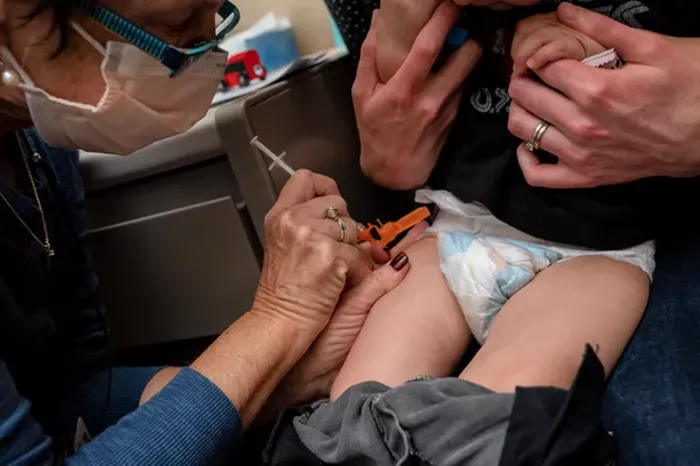Taking a baby to the doctor for vaccinations can be a stressful experience for parents, but it is an essential part of early childhood healthcare. Babies are required to receive vaccines to protect them from about 15 infectious diseases. Many of these vaccines require multiple doses, leading to nearly 30 shots by the age of two.
Some parents might consider delaying or spreading out these vaccinations, but health experts strongly advise against deviating from the recommended vaccination schedule.
“The schedule is designed to protect babies from the diseases they are most vulnerable to at specific stages of development,” explained Dr. Kisha Davis, chief health officer for Montgomery County, Maryland, and a board member of the American Academy of Family Physicians. “There is solid scientific evidence supporting this approach, backed by years of research and experience.”
Why Spreading Out Vaccines Isn’t Recommended
Vaccines are crucial in protecting babies, whose immune systems are still developing and are particularly vulnerable to infections. Dr. Ofer Levy, a pediatric infectious diseases expert at Boston Children’s Hospital, emphasized that delaying immunizations puts babies at unnecessary risk.
“Every day you delay a vaccine, you’re increasing the chances of exposing that child to preventable diseases,” Dr. Levy said.
Many childhood vaccines offer long-lasting immunity, making it especially important to ensure protection early in life. Dr. William Schaffner, an infectious diseases professor at Vanderbilt University Medical Center, noted that following the recommended vaccine schedule is also more convenient for parents.
Spreading out vaccines can result in extra doctor’s visits and more shots to ensure the same level of protection. Additionally, life events might lead to missed appointments or further delays, which could have serious consequences. The COVID-19 pandemic, for example, caused many wellness visits to be postponed, affecting vaccination rates.
A September study in the CDC’s Morbidity and Mortality Weekly Report showed that vaccination rates among children born in 2020 and 2021 were lower than those born in 2018 and 2019, particularly for vaccines administered later in life.
“Postponing vaccines often leads to missed opportunities for protection,” Dr. Schaffner said.
Addressing Concerns About Overloading the Immune System
Some parents worry that the number of vaccines given to young children could overwhelm their immune systems. Dr. Schaffner reassured parents that this is not the case.
“The immune system is remarkably capable of handling multiple vaccines,” he said.
This concern gained attention last summer when a video surfaced of then-President-elect Donald Trump expressing doubts about childhood vaccines, suggesting that they were too many for a baby’s body to handle. However, experts, including Dr. Davis, pointed out that the vaccines are far fewer than the countless pathogens babies encounter daily as they explore their environment.
While childhood vaccines may introduce around 140 microbes to the immune system, babies are exposed to thousands more from everyday activities like crawling on the floor, touching objects, and interacting with pets.
“There’s no harm in following the vaccination schedule,” Dr. Davis said. “It’s a safe and effective way to protect your baby.”
Catching Up on Missed Vaccines
If parents fall behind on vaccinations, it’s never too late to catch up, health experts say. Parents should reach out to their pediatrician to develop a plan to get their child back on track. However, experts strongly advise against intentionally delaying vaccines.
“Delaying vaccines is risky,” Dr. Schaffner warned. “It’s like playing vaccine roulette.”
Related topics:


